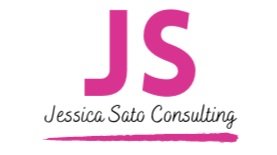The Business Case for Impact
Entrepreneurs and business owners are living and running businesses as the operational landscape shifts before our eyes. The paradigm we’ve operated in for years - profit before everything else - is no longer the accepted norm. There’s a strong push to be more intentional about how we impact the planet and people.
In fact, I believe businesses that continue to focus solely on profit will struggle to grow in the long term. That may seem like a bold statement, but socially conscious founders and entrepreneurs are changing the business narrative, highlighting how financial success and making a social impact are no longer mutually exclusive.
So what does this mean for business leaders, executives, and founders?
It means proactively building an impact strategy is essential to growth, and when done well, it serves as a critical piece of your competitive advantage.
So, let’s talk about the business case for impact. In today’s newsletter, I’ll share four areas where having an impact strategy can unlock significant opportunities and contribute to your long-term business success.
Conscious Client Attraction
A majority of consumers, 70%, believe that companies have a special responsibility for helping to make the world a better place.
“Nearly two-thirds (64 percent) of consumers around the world will buy or boycott a brand solely because of its position on a social or political issue,” according to the 2018 Edelman Earned Brand study, a massive increase of 13 points from previous years.
And those numbers will continue to increase, especially when you factor in the spending power of Generation Z, the largest generation in history. They care deeply about investing in and spending their money with companies that align with their personal values.
The challenge: most consumers (78%) struggle to identify who those companies are.
This presents a unique opportunity for businesses with high quality products and services to be bold in their stance, authentic in their aims, and clearly demonstrate their values through action. Having a strong social and environmental impact strategy as part of your growth plan will allow you to tap into a new and growing market of conscious consumers and give you a competitive advantage compared to businesses that refuse to shift.
Attract and Retain Top Talent
Three-quarters (76%) of Millennials consider a company’s social and environmental commitments when deciding where to work, and 64% won’t take a job if a potential employer doesn’t have strong corporate social responsibility (CSR) practices, according to a Cone Communications study.
Millennials and Gen Z, make up a significant portion (38%) of the workforce, and by 2030, that number will rise to 58%. These two generations prioritize purpose and meaning in their careers, and they actively seek employment with companies that prioritize social impact alongside financial success.
After spending over a decade at a Fortune 100 aerospace company, I know just how costly it can be to replace highly qualified employees. Businesses that are making a genuine impact, not only have a better chance of attracting top talent, they also keep them.
Increase Your Operational Efficiency
Incorporating an impact strategy into your business growth plan can significantly enhance your operational efficiency. According to a McKinsey study, 22% of companies who engaged in sustainability initiatives realized moderate to significant cost savings, and others were optimistic that within five years, they’d also see cost savings as a result of their efforts.
Sustainable practices and optimizing resource utilization takes time and money. It requires a shift in your operational practices that may result in increased expense in the short term, but the business case is irrefutable.
Research from GreenPrint found that nearly 80% of consumers are more likely to purchase a product labeled as environmentally friendly, with 77% of those surveyed saying they are concerned about the environmental impact of products they buy.
A separate study from IBM found that on average, 70% of purpose-driven shoppers pay an added premium of at least 35% more per upfront cost for sustainable purchases, such as recycled or eco-friendly goods.
By embracing focused sustainability and efficiency practices, you can improve your bottom line while minimizing their environmental impact, creating a win-win situation for both the company and the planet.
Mitigate Risk
I’d be remiss if I didn’t talk about the challenge and inherent risks of not having a social and/or environmental impact strategy.
With 77% of consumers motivated to purchase from companies committed to making the world a better place, and 73% of investors stating that a business’s efforts to improve the environment and society contribute to their investment decisions, businesses that ignore impact are going to struggle.
The world is deeply interconnected. Consumers talk, and negative publicity, unethical behavior, and environmental disasters can easily damage a company's reputation and bottom line.
By developing and incorporating an impact strategy, you can proactively mitigate risk and take steps to secure success in the long.
One caution: be authentic.
Green- or purpose-washing, making false or misleading statements about your social or environmental efforts, will be incredibly challenging to overcome as consumers are quick to suss out and jump on false narratives.
Demonstrating genuine commitment to sustainability and ethical practices fosters trust and loyalty among your stakeholders and helps safeguard your future in an increasingly conscious marketplace.
Where does your business stand with respect to creating an impact?
Do you have a clearly articulated impact strategy? Are you taking action to implement it?
Are you being genuine in your approach?
Now’s the time to examine your company’s efforts and create or shore up your impact strategy.
Your stakeholders are waiting for you to show up boldly and use your business for good.
RESOURCES
Business Strategy Brainstorm Session
10 Questions to Find Your Big Idea and Align It To Your Business Strategy



